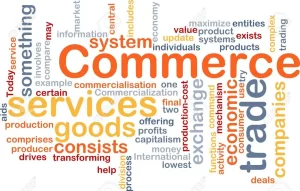
Tax Evasion and Tax Avoidance
Depending on the situation, tax evasion and tax avoidance are both criminal offenses. The punishment for either can be as severe as jail time, and varies depending on intent and the amount of underpayment or error committed. If you earn tips on the side, report them. Underreporting your income or taking deductions you don’t earn is a form of tax evasion. It is mandatory to file a tax return to avoid penalties and being sued for nonpayment.
By far the most common tax evasion and avoidance techniques involve the deliberate understatement of taxable income or overstating deductible expenses to reduce your tax liability. They often promise large savings on taxes, but can result in severe consequences. Here are some common tax evasion and avoidance strategies:
Despite the similarities between these two forms of tax avoidance and evasion, the differences between the two are striking. Tax avoidance, on the other hand, involves legitimate ways of reducing tax liability. Often taxpayers who legally reduce their taxes remain honest about where the money goes. Tax evasion involves hiding certain aspects of their finances from the IRS, and can lead to penalties such as failure to file, underpayment, and accuracy-related penalties. Those penalties are compounded by interest on the penalties.
In addition to evasion and avoidance, tax fraud is another form of moral fraud. While moral fraud is generally not criminal in itself, it can lead to significant consequences. Fortunately, the IRS has strict penalties for both tax avoidance and evasion. By enacting a law aimed at stopping this kind of fraud, the IRS can stop many of the most common tax avoidance schemes. However, some taxpayers choose to violate the law to avoid paying taxes altogether.
In some cases, individuals have legitimate reasons for trying to avoid taxes. For instance, Al Capone, the famous gangster, was accused of tax evasion because of his activities. The gangster earned money from alcohol and gambling. The wealthy tend to engage in tax evasion more than those with lower income levels. The money from these activities makes the activity worthwhile. This, in turn, results in a shortfall in tax revenue, which is especially problematic in developing countries.
Employers that pay employees in cash also increase their chances of being accused of tax evasion and avoidance. For example, the practice of keeping payroll tax cash under the table has led to accusations of criminal tax fraud. Even worse, employers who pay their employees in cash may falsify payroll records and underreport payroll taxes. In addition, a Charlotte, North Carolina woman pled guilty to assisting the preparation of a false tax return. She admitted to using the most common forms of tax preparer fraud, including creating fake deductions and claiming education credits that were not real. With penalties and prison terms, the woman faces up to three years in jail, probation, and restitution.



